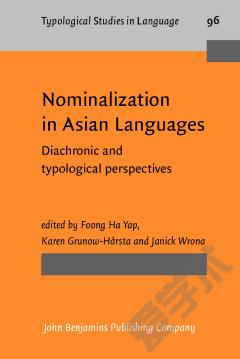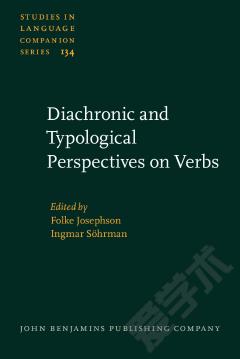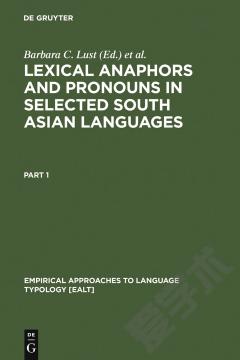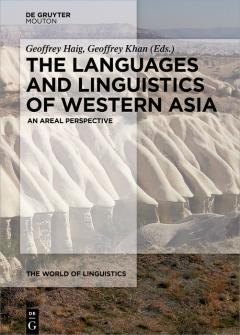Nominalization in Asian Languages. Diachronic and typological perspectives.
Research on nominalization, a process that gives rise to referring expressions, has always played a central role in linguistic investigations. Over the years there has also been growing evidence that nominalization constructions often extend to non-referential domains. They participate in noun-modifying expressions (e.g. genitive and relative clauses), subordinate clauses and topic constructions, finite structures with the nominalizers reanalyzed as TAM markers, and stance constructions with evaluative, attitudinal, evidential and epistemic overtones. This volume brings together historical and crosslinguistic evidence from more than 20 different languages representing six different language families spanning the Asian continent and the Pacific and Indian oceans to elucidate the strategies and grammaticalization pathways that give rise to both referential and non-referential uses of nominalization constructions. This collection highlights the diversity of strategies and at the same time the robust cyclical nature of change within and across languages. The combined diachronic and typological analyses in this volume are particularly valuable for linguistic research on diachronic morphosyntax and linguistic ‘universals’, and are also an important supplementary cross-referencing tool for linguistic investigations of versatile and ubiquitous morphemes in under-documented languages.
{{comment.content}}








 京公网安备 11010802027623号
京公网安备 11010802027623号